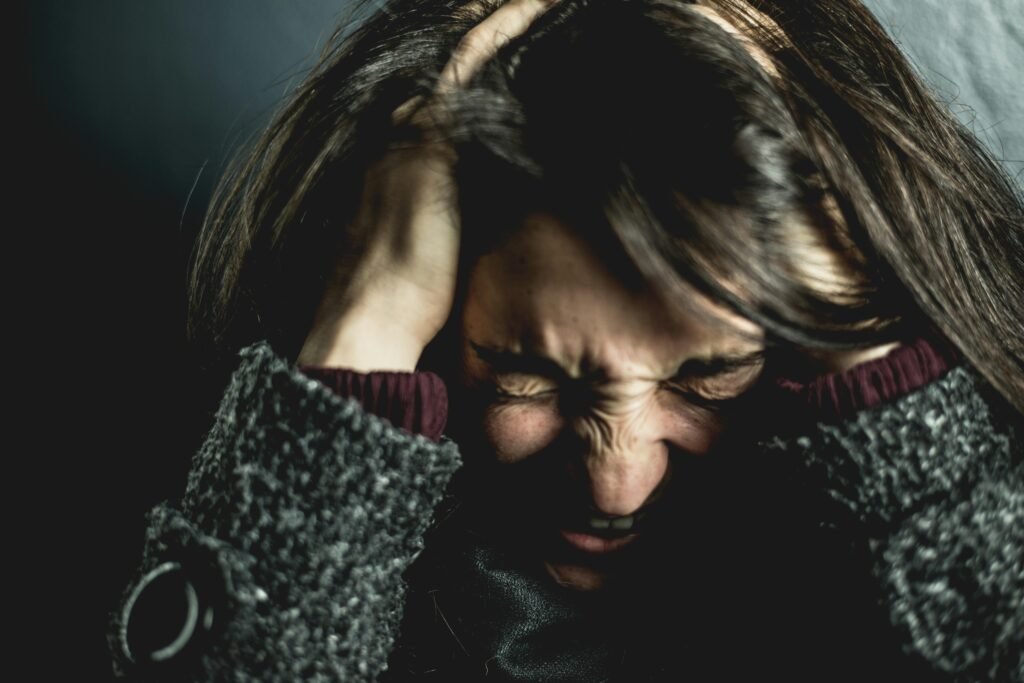Follow us and share.
Headaches: Common Types, Triggers, and How to Relieve Them Without Medication
Headaches are a nuisance that affects millions of people every day. They can be mild or debilitating, brief or persistent, and have multiple causes ranging from muscle tension to dehydration and stress.
Learn to identify the most common types of headaches and how to relieve them naturally. Discover triggers and medication-free prevention strategies.

Headaches are a nuisance that affects millions of people every day. They can be mild or debilitating, brief or persistent, and have multiple causes ranging from muscle tension to dehydration and stress. In this article, we discuss the most common types of headaches, the factors that trigger them, and what you can do to relieve them naturally and effectively, without relying solely on medication.
📌 Most common types of headaches
Knowing the type of pain you're experiencing can help you identify its source and apply the most appropriate treatment:
- Tension headache: This is the most common. It's perceived as a constant pressure on both sides of the head, in the forehead or the nape of the neck. It's usually related to stress, fatigue, anxiety, or poor posture. It often appears at the end of the day or after long hours in front of screens.
- Migraine: It is a throbbing pain that usually affects only one side of the head. It may be accompanied by nausea, vomiting, and sensitivity to light or sound. It sometimes presents with a prior visual or sensory aura. It is more common in women and can last between 4 and 72 hours.
- Cluster headache: Less common but very severe. It generally affects one eye and its surrounding area and can occur in recurring episodes, usually at the same time of day or night. It can cause watery eyes, nasal congestion, or drooping eyelids.
- Sinus headache: Related to infections or inflammation of the sinuses. It presents with pain in the face, forehead, or around the eyes, and usually worsens when bending over or waking up.
📌 Triggers you should know
There are multiple causes that can trigger or worsen headaches. Some of the most common include:
- Stress and emotional tension: The body reacts to stress by contracting muscles in the neck, shoulders, and jaw, which can trigger tension headaches.
- Lack or excess of sleep: Sleeping too little or too much alters the circadian rhythm, negatively affecting the central nervous system.
- Poor hydration: Dehydration reduces blood flow and affects oxygen levels in the brain.
- Skipping meals or poor diet: Low glucose levels can cause headaches. Excessive consumption of processed foods rich in monosodium glutamate or additives is also a risk factor.
- Hormonal changes: Especially in women during menstruation, pregnancy or menopause.
- Prolonged exposure to screens: Blue light and eye strain are common triggers, especially if you don't take visual breaks.
- Sensory stimuli: Bright lights, strong odors, loud noises, or sudden changes in temperature can trigger migraine attacks in sensitive individuals.
Keeping a headache diary can help you identify patterns and personal factors that trigger your headaches.
📌 Natural ways to relieve headaches
Although occasional use of pain relievers can be helpful, there are also natural and effective strategies to reduce the intensity and frequency of headaches. These options not only help treat the symptom but also prevent future attacks:
- Proper hydration: Drinking enough water throughout the day prevents dehydration, a common cause of headaches. Adding a pinch of unrefined sea salt can help replenish essential minerals.
- Regular exercise: It helps release endorphins, improve circulation, and reduce accumulated stress. Activities such as walking, swimming, or yoga are highly recommended.
- Relaxation techniques: Yoga, meditation, deep breathing, and mindfulness reduce the activity of the sympathetic nervous system, which is responsible for stress.
- Application of cold or hot compresses: Cold ones for migraines, as they constrict dilated blood vessels; hot ones for tension headaches, as they relax the neck and shoulder muscles.
- Neck, shoulder and temple massages: They relieve muscle tension and improve circulation. You can use essential oils like lavender or peppermint to enhance the effect.
- Aromatherapy: Diffusing relaxing essential oils such as eucalyptus, rosemary, or frankincense can help reduce symptoms.
- Avoid excessive consumption of caffeine, alcohol and refined sugars: These stimulate or inflame the nervous system, which can trigger headaches.
- Sleep well: Maintaining regular sleep schedules, creating a dark and quiet environment, and avoiding screens before bed improve the quality of rest.
It's also advisable to maintain good posture throughout the day, especially if you sit for long hours, and to take active breaks to avoid muscle strains.
💡 Final Reflection: Listen to your body and act with prevention
Headaches are a signal our body gives us when something isn't working as it should. Learning to recognize their causes, prevent their triggers, and apply natural solutions can improve your daily well-being and reduce your dependence on medications.
Prevention is better than treatment. Listening to your body, managing stress, sleeping well, and maintaining a balanced diet can significantly reduce the frequency and intensity of your headaches. If symptoms are severe, recurring, or affect your daily life, don't hesitate to consult a specialist.



